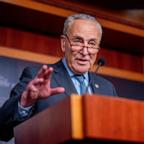Weight Gain Can Increase Breast Cancer Risk
Women who become overweight in middle age increase their breast cancer risk.
Oct. 23, 2007 — -- Weight gain has already been associated with several illnesses, including diabetes, heart disease and even insomnia. Now, according to new research published Monday in the journal Archives of Internal Medicine, it has been linked to another health problem: breast cancer.
Researchers at the National Cancer Institute in Bethesda, Md., analyzed data from 99,039 women who were part of a diet and health study of the National Institutes of Health. The women reported their body measurements, as well as their height and weight at ages 18, 35 and 50.
The researchers then calculated each woman's body mass index (BMI), which put them into the categories of underweight, normal weight or overweight. They also tracked which of the women developed breast cancer.
For women not taking hormonal therapy after menopause, gaining significant weight — between 44 and 66 pounds — at any point after age 18 can lead to an increased risk of breast cancer.
In addition, women who were considered normal weight at 18, but fell into the overweight or obese categories later in life had a 50 percent larger risk of developing breast cancer, compared to women whose weight stayed steady throughout their lives.
"Our study is the first to suggest that weight gain at any stage of life was associated with breast cancer risk," said Jiyoung Ahn, a researcher in the division of cancer epidemiology and genetics at the National Cancer Institute and one of the study's authors.
"Although obesity is a well-known risk factor of breast cancer among postmenopausal women, it was unclear whether weight gain during a particular stage of life is important or weight gain during throughout adulthood is important in developing breast cancer."
Doctors have been looking with closer scrutiny at the effects of weight on risk factors in recent years.
"Weight and weight gain have been associated with breast and other cancers in prior studies," said Dr. Clifford Hudis, chief of the breast cancer medicine service at Memorial Sloan-Kettering Cancer Center in New York. "This adds important information because it is a large study and is not limited to a narrow age range."




